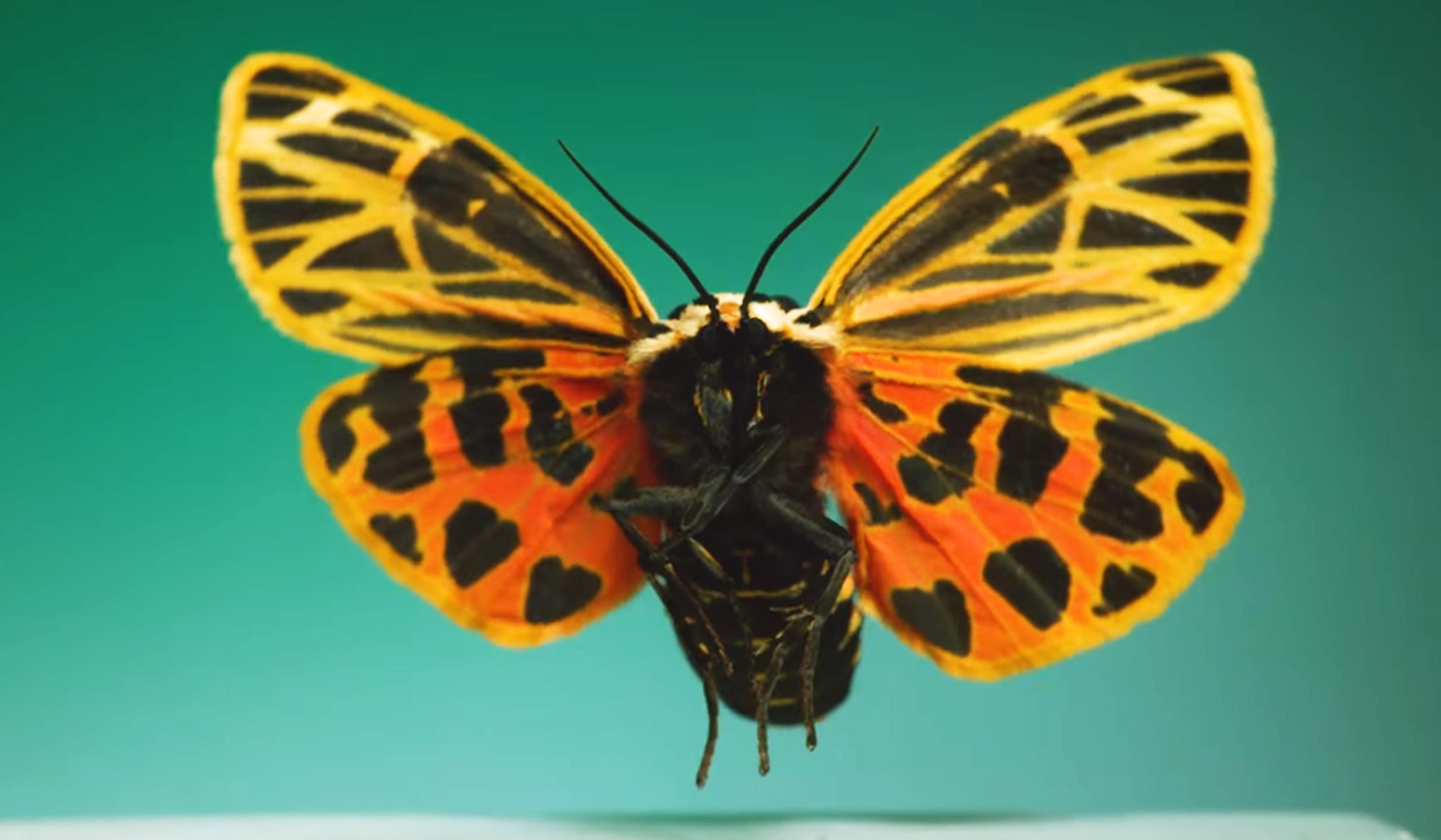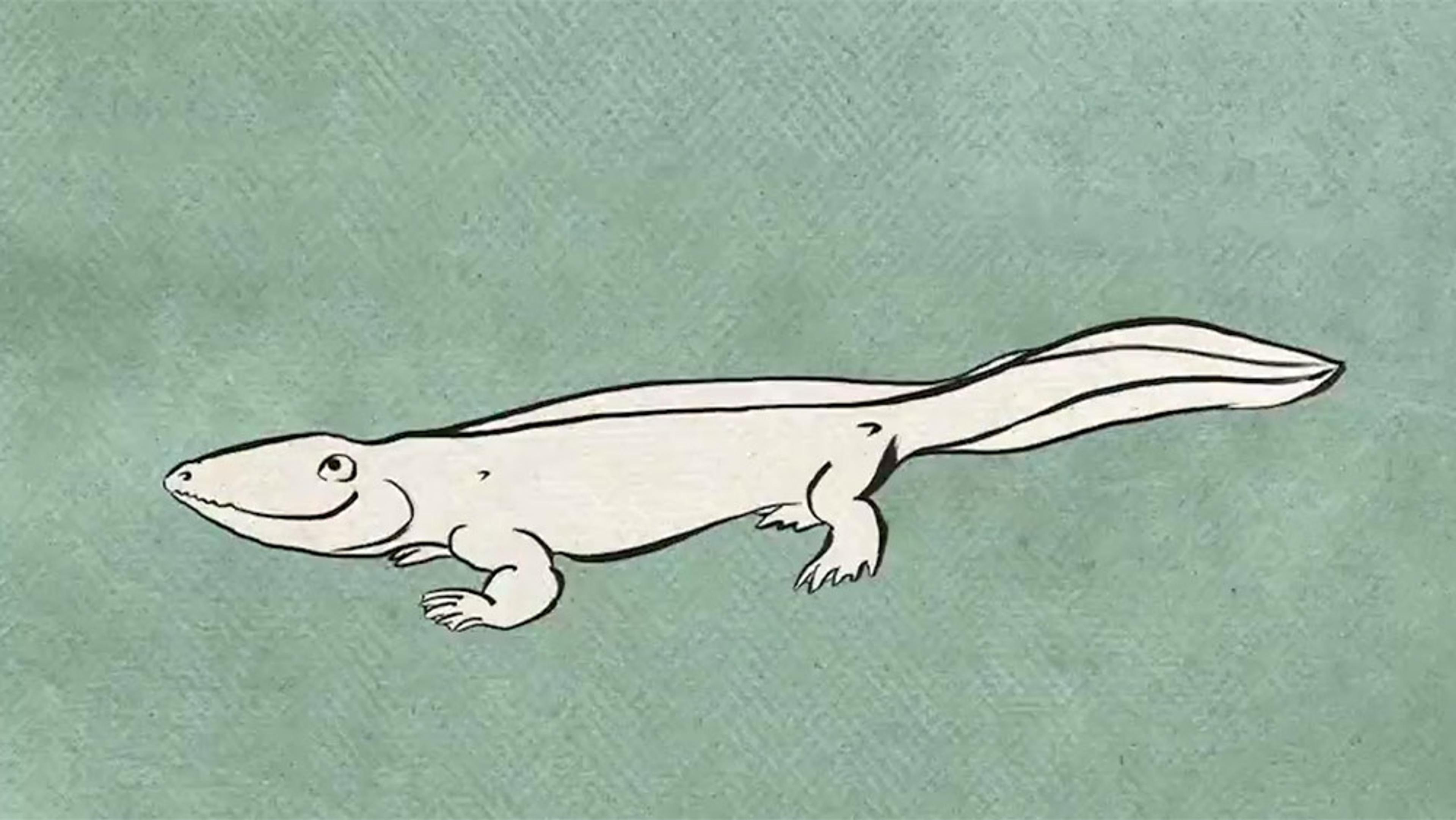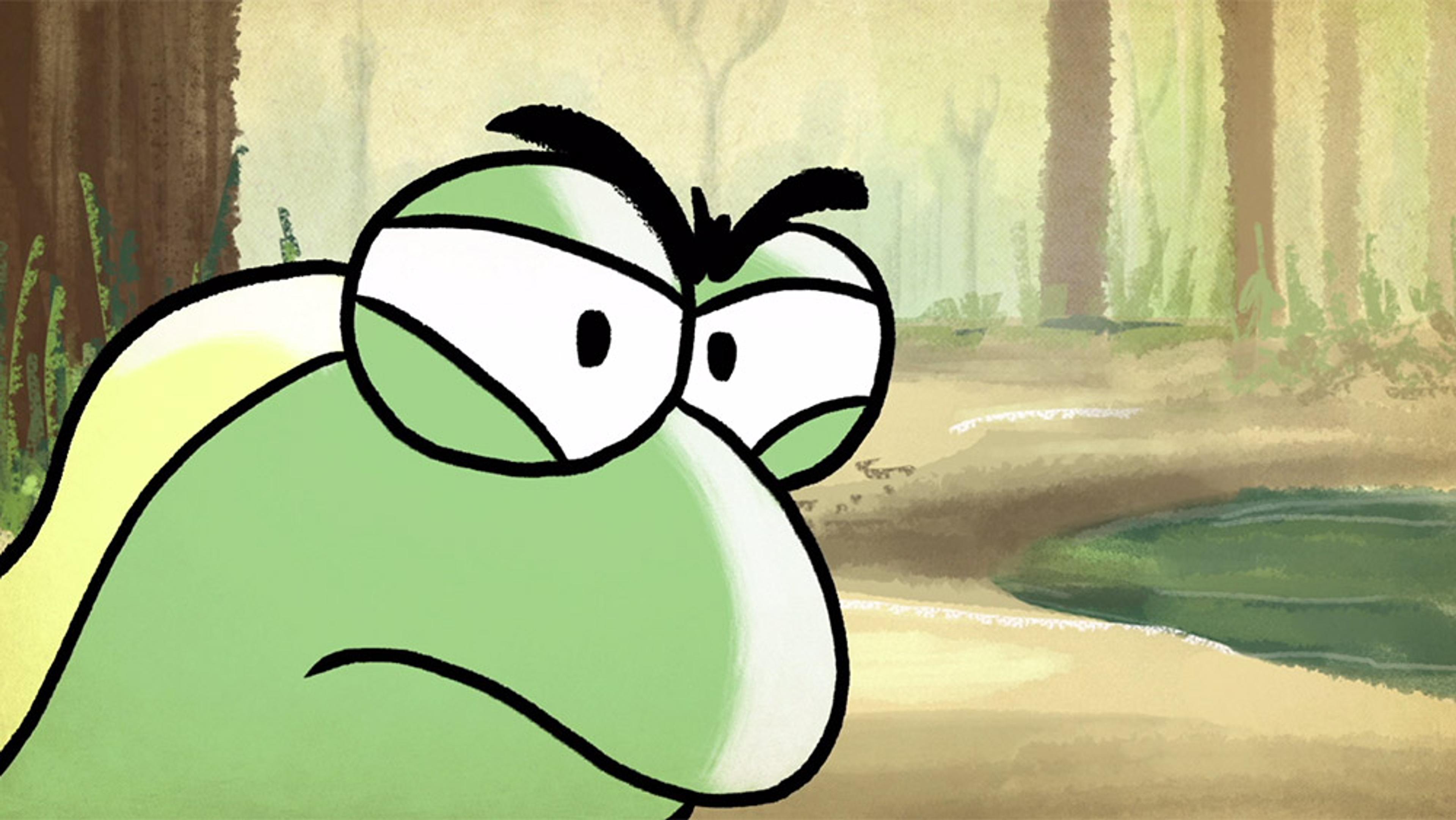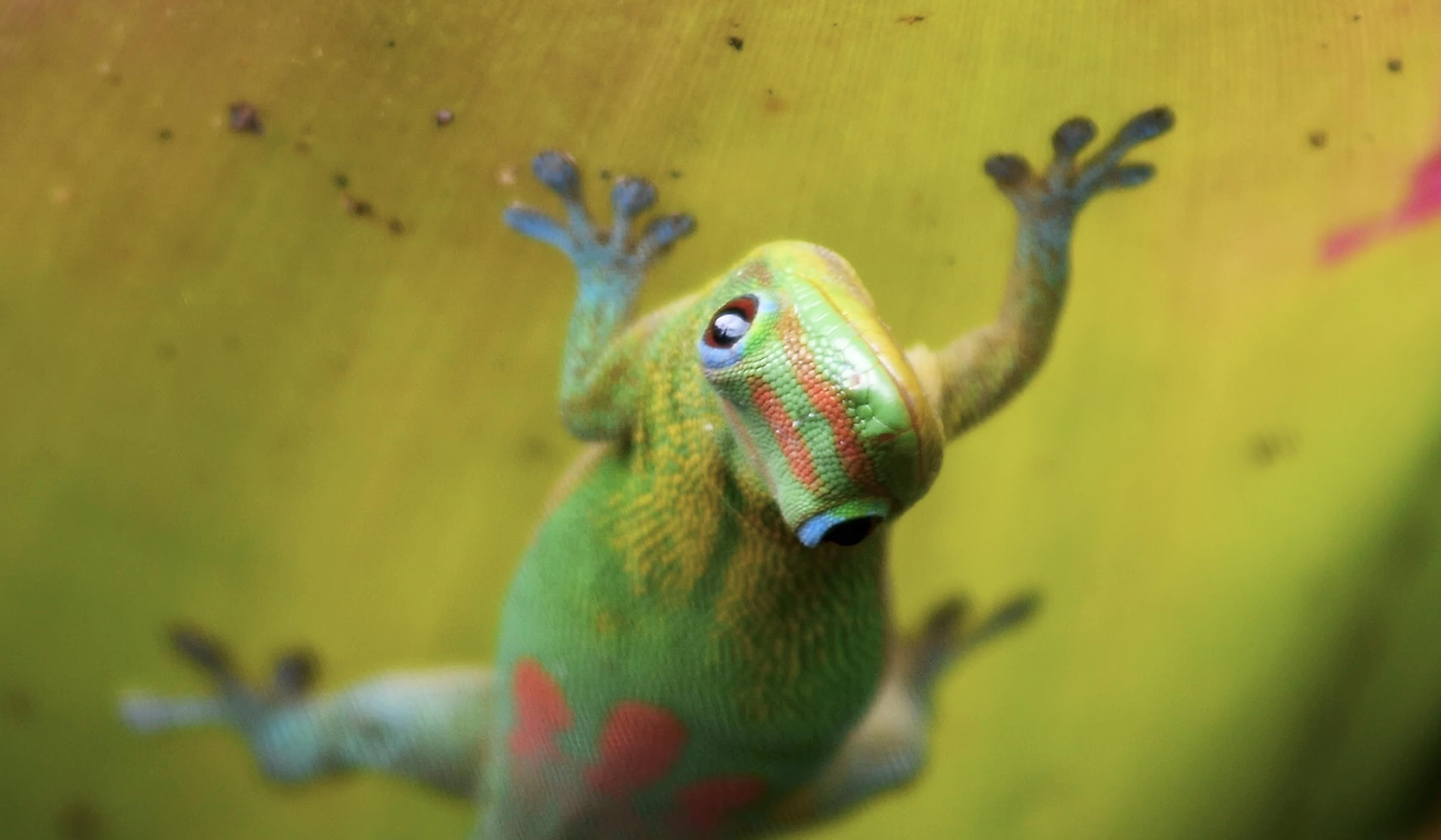Kurt Schwenk, a professor of ecology and evolutionary biology at the University of Connecticut, views reptile and amphibian tongues as his ‘Darwin’s finches’. And, due to recent advances in high-speed cameras, he’s currently in a golden age of discovery. This short from Science magazine pairs Schwenk’s passionate words on his field of study with some incredible in-the-lab footage detailing the many ways these creatures have evolved to stick to, grasp and pick up their prey with their tongues. In doing so, the piece highlights the diverging, sometimes peculiar paths evolution can take, as well as how lab research can be a deeply creative process too, and not just a strictly observational one.
The many ways a lizard tongue sticks, grasps, pinches and plops – in slo-mo

videoBiology
Beetles take flight at 6,000 frames per second in this perspective-shifting short
9 minutes

videoEcology and environmental sciences
Close-ups reveal how caterpillars live long enough to cocoon
9 minutes

videoBiology
There’s no one way for an insect to fly, but they’re all amazing in close up and slo-mo
7 minutes

videoBiology
How insects become airborne, slowed down to a speed the human eye can appreciate
8 minutes

videoHuman evolution
Human to fish, and back again: a brisk walk through our evolutionary history
1 minute

videoHuman evolution
Why did our sea-dwelling ancestors leap to land? It might have been the view
4 minutes

videoBiology
A pioneering biologist explains the co-evolution of the vagina and penis
6 minutes

videoEcology and environmental sciences
The tree frog die-off that sparked a global mystery – and revealed a dark truth
15 minutes

videoBiology
The key to geckos’ unrivalled climbing skills isn’t sticky feet. It’s subatomic
4 minutes